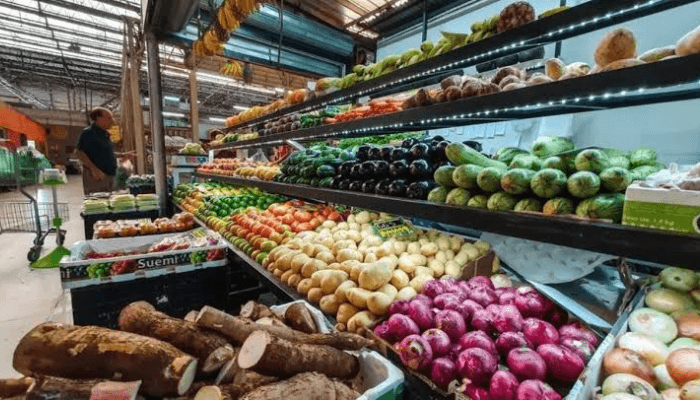Stakeholders have stressed the need for strong state-level policies, youth inclusion and innovation-driven collaboration to build a resilient and impact-driven food system across Nigeria.
The call was made during the Sahel Food System Changemakers Conference held in Abuja on the theme “Designing for Legacy: Building Resilient and Impact-Driven Food Systems”.
In his remarks, agricultural policy expert, Winnie Lai Solarin, highlighted the importance of decentralizing agricultural policy making and empowering states to implement tailored interventions.
“Agriculture is in the concurrent list, no matter what we do at the Centre, we cannot reach everyone. We need to challenge the states to come up with their own programmes. Let's move towards bringing it to the states rather than looking at the policy from a national perspective,” he said.
Solarin urged the government to increase cooperation with development projects that can reach more people than federal interventions alone.
“Government interventions are often very small. Only projects have the potential to reach more people. We should start allocating part of our budget to such initiatives, monitoring how the funds are used and ensuring impact,” he said.
Senior Special Assistant to the President on Agribusiness and Productivity Enhancement, Kingsley Uzoma, reiterated President Bola Tinubu’s commitment to inclusive growth in the agricultural sector, stressing that every federal policy is designed to prioritize youth, women and persons with disabilities.
Uzoma also stressed the role of digitalization and access to information in increasing productivity.
“From the comfort of your home, even with a phone, you can access agricultural data and practices that can optimize yields. The government is providing a policy framework for access to information through the National Broadband Scheme, NCC and the Rural Electrification Initiative, which is being extended to farm groups to provide farmers access to internet and energy.”
He said several federal initiatives including the Ministry of Youth Development and the Agricultural Training and Empowerment Program are being aligned to support young farmers.
“We must take advantage of these frameworks. The government is doing the outreach and creating the structure, but farmers also have to take the initiative,” he stressed.
National Coordinator, AfCFTA Implementation Office, Segun Awolowo, stressed the opportunities offered by the African Continental Free Trade Area (AfCFTA) to Nigerian entrepreneurs, especially women and youth.
Awolowo disclosed that in the last two years, his office had identified 10 key agricultural and manufactured products where Nigeria holds competitive advantages, including oil palm, shea butter and spices.
“We have developed market guides and an e-platform to help agricultural entrepreneurs find where their products are in demand across Africa. The platform also serves as a matchmaking hub for buyers and sellers to easily do business within the continent,” he said.
He said awareness and sensitization efforts on AfCFTA occasions remain a priority.
Also read: FG reaffirms commitment to zero hunger as FAO warns 34 million Nigerians at risk of food insecurity by mid-2026.
“Nigeria is big, and reaching everyone is a challenge. That's why we focus on information dissemination to help everyday Nigerians understand what the AfCFTA means for them,” Awolowo said.
In his remarks, the Executive Director of the Policy Innovation Center (PIC), Osasuyi Dirisu, encouraged young innovators to take advantage of opportunities to develop scalable ideas within the agricultural value chain.
He revealed that PIC recently held a hackathon involving over 450 young innovators, where participants received cash prizes and access to an innovation lab to co-create solutions for the food system.
“We are excited to create platforms where youth can innovate and do great things. Our design and innovation lab is open for incubation and support,” he said.











